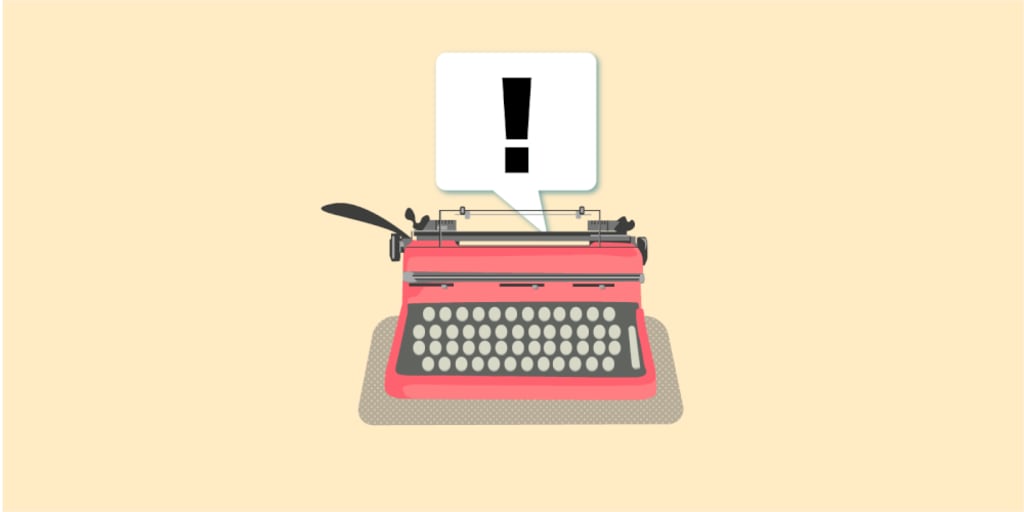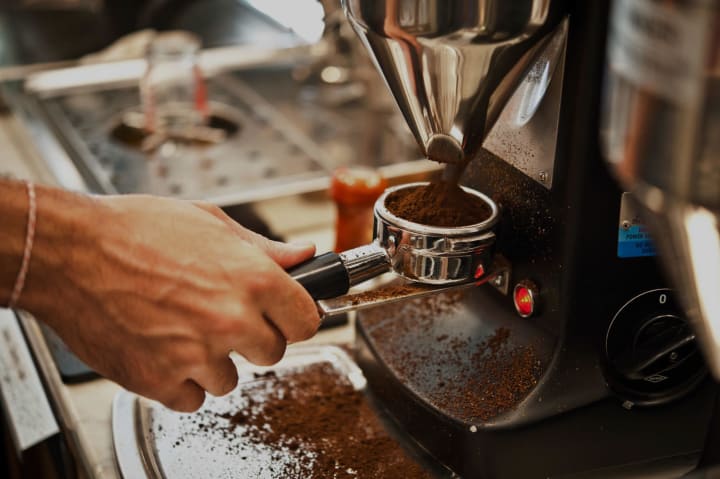Your Voice Matters; Especially To Other People
Why are we so reluctant to use our voices when we know something is wrong?

I stand in a coffee shop. Unbranded, unattractive, unoriginal. It has no outward appeal, except that it's in a convenient spot on the high street. Attracting the masses. When in this particular coffee shop, I lay into my observancy. Being an art and political law student, trained to observe and analyse the world around me, I watch.
I'm content with watching—watching a stranger interact with their lover, or a friend with their employer, is a fantastic view into how society works outside of your head. They say that 1/5 people are gay. That means there's at least three in this coffee shop other than me. But I don't know that, and I don't know them. That's why the world is ever so fascinating and colourful—it allows for people to be so brutally individual that all you can possibly do is observe. Watch how they interact with objects, people. However, it also allows for more sallow qualities to be overlooked - bitterness, greed, ignorance. That's potentially the worst of them all, ignorance. Because we live in a diverse, multicultural, beautiful society, yet somehow the actions and manners of others are so immature that some of the magic is lost.
I watch. There are a approximately 20 customers in this coffee shop, and I don't know any of them. The lady in front is struggling with her order to an indifferent and unbothered barista, so I look at the table to my left. It's a couple, I presume, holding hands and whispering to each other. The woman grins, with ease and comfort, as the man caresses her thumb. It's idyllic, tranquil, almost sweet.
However.
The man has one hand in his partner's, the other on his phone. The caresses stop but the other hand works faster, smashing out content to the almost clinically protected touchscreen. The woman seems agitated, the whispers becoming aggressive, shaky, and hurried.
They withdraw their hands from the table. The man throws his phone in his bag and his hands in front of his face, sharp movements in the air. She cowers, pushes her Americano away, he persists.
I don't watch anymore. There's a line at which watching becomes invasive, rude, and this seemed like an intimate moment. I look to the window seat next to them.
It's a mother and daughter, who has a child sat on her knee. Again, a pleasant and borderline cute sight. The child has green bows in her hair and a matching dress that she chews in her child like wonder and bliss. Switching my attention to the daughter, I notice her withdrawn nature: the older woman seems far more interested in the child than her. She sits back in her seat, solumn, in tattered Reeboks and a stained hoodie, whereas the older woman is dressed to the nines in a designer coat and floral dress.
I watch as the older woman grips her daughter's hand violently, tapping her empty ring finger. A sharp tug brings the daughter's hand back under the table to fiddle with her jeans.
I don't watch anymore. I don't look at the previous couple either. I don't know them: I shouldn't intervene. The lady in front steps to the side, and I reach for my wallet as I say my order. Too slow. A man, new to the shop, puts his hand on my shoulder. He wears a suit: must be a businessman or an office worker. Pushing away my wallet, he swipes his own card on the reader. I look at him, argue that although I am grateful I could have bought it myself. He simply shakes his head.
I don't watch, but I can feel his hand uncomfortably low on my back. I say nothing, moving to take my coffee, and if the barista sees they don't say anything either. All I see as I turn away is the furrow of their eyebrows as their eyes move South.
His hand is still there as I walk to my table, passing the couple. By now, it felt too late to say anything. Too late to comment on what I knew was wrong. I sit, he moves away, the world keeps turning.
I don't need to watch any more - I can hear them. The couple grows in intensity, their aura shaking as the man uses increasingly creative insults. She zips and unzips her coat, he hits the table. I stare into the depths of my coffee cup, finding little breathing room in it. What's the queue like in Morrisons? How did Annie's MOT go?
As my mind pollutes with distractions, I hear it. We all do. The smack. It reverberates around the room, impregnating the comfortable chatter. I can't look at my cup any longer, and revert my eyes to the couple. A red mark throbs across the woman's delicate face, the man's hand jilted on the table top.
Across the room, the daughter and child are alone now, a still full cup of coffee abandoned in the opposite place. There's a sniff, a wipe of the eye, and a jog of the child.
I watch a man enter the shop, and leave before the door swings shut behind him.

Three occasions within fifteen minutes where using my voice and opinion felt inappropriate. The stigma surrounding opinion, standards and your place are long and weary, as well as outdated. Your voice is the most powerful tool you have, and you should never be afraid to use it. Many politicians argue that it's 'political correctness gone mad': I argue it's simply consideration and understanding. The first step to being citizen is the emotion of empathy and the ability to use it - being able to sympathise with other people is humanising and grounding, allowing for more and more people to relate to you. Being able to relate to people allows you to feel comfortable helping when they need it. To be able to recognise warning signs, and to feel strong enough to act on them. There is nothing to be ashamed of if you think that something needs to be said. If you think that person is being poorly treated, offer a soft word of support at the least. If you think someone is being unlawfully judged, make sure they are safe. No one else can have the thoughts that you do, or can think the way you think. It's entirely unique. Many are lost in the complacency of corruption and distraction, taking away from the true value of the voice. It is the only weapon needed in your arsenal, with the ability to spread like wildfire. Humans instinctively and subconsciously judge and assume, and we must all overcome this barrier of muteness.
The use of the voice is an art that has died out, but can be ever so powerful. It soothes, it supports, and most importantly it saves lives.
About the Creator
Paige A'court
I'm Paige, a student currently studying for my ALevels, and a terrible person. Thats not completely true. I'm a great person, just far too passionate (I once started a riot in class because I pitief the department pet fish). I'm so fun.






Comments
There are no comments for this story
Be the first to respond and start the conversation.